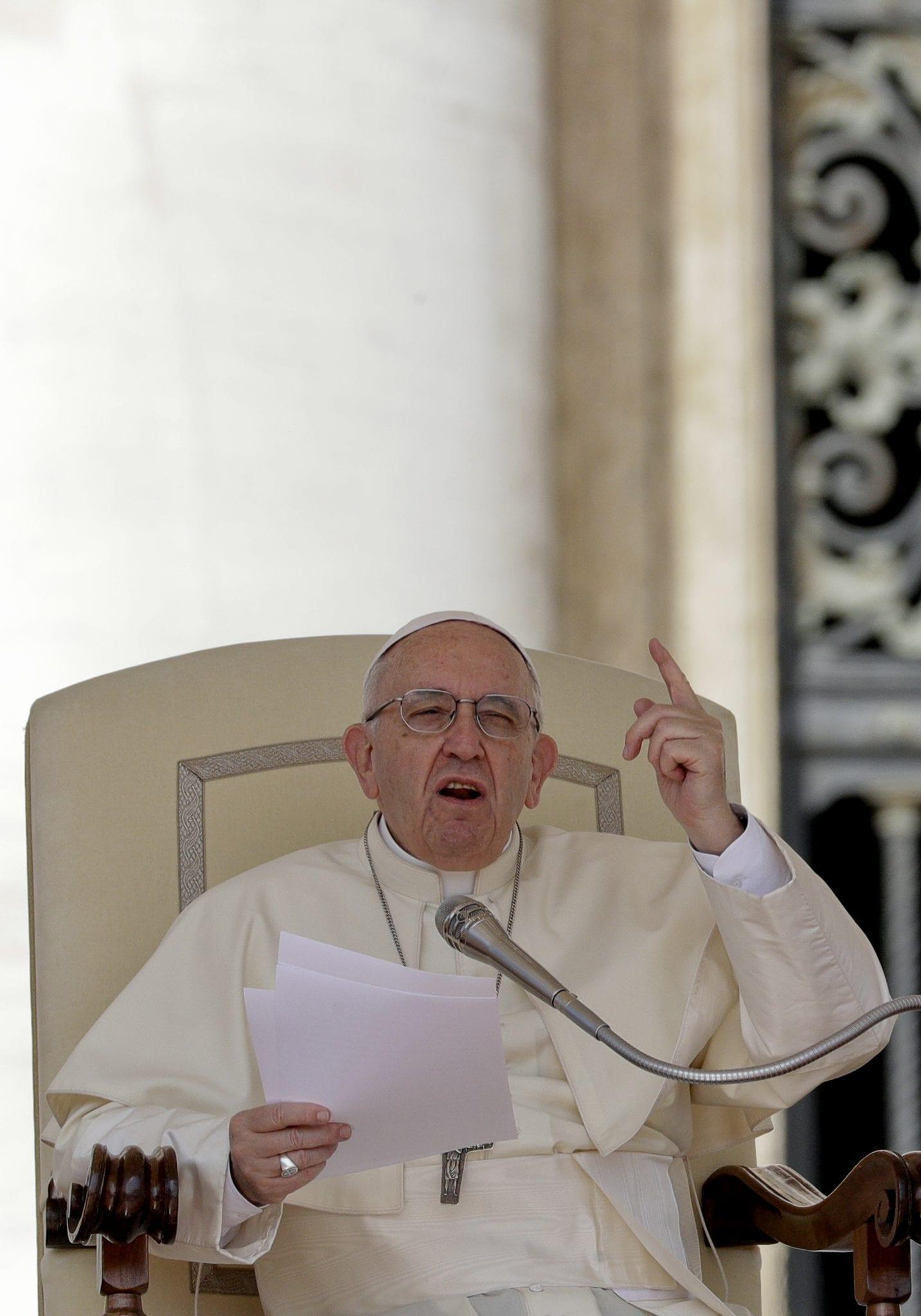ROME – According to the Catechism of the Catholic Church, the death penalty now is no longer admissible under any circumstances.
The Vatican announced on Thursday Pope Francis approved changes to the compendium of Catholic teaching published under Pope John Paul II.
“The death penalty is inadmissible because it is an attack on the inviolability and dignity of the person,” reads the Catechism of the Catholic Church now on the death penalty, with the addition that the Church “works with determination for its abolition worldwide.”
This is a departure from what the document, approved under Pope John Paul II in 1992, says on the matter: “Assuming that the guilty party’s identity and responsibility have been fully determined, the traditional teaching of the Church does not exclude recourse to the death penalty, if this is the only possible way of effectively defending human lives against the unjust aggressor.”
The former formula does stipulate that if non-lethal means are sufficient to protect people’s safety from the aggressor, then authority must limit itself to it, as these “are more in keeping with the concrete conditions of the common good and more in conformity to the dignity of the human person.”
In 1997, the Catechism was changed to reflect John Paul’s 1995 encyclical Evangelium Vitae.
The addition said that the cases in which the execution of the offender is an absolute necessity “are very rare, if not practically nonexistent.”
The statement released by the Vatican’s press office on Thursday says that Francis approved the new changes to point number 2267 of the Catechism on May 11, 2018, during a meeting with the Prefect of the Congregation for the Doctrine of the Faith, Spanish Cardinal Luis Ladaria.
As it’s been re-written, the Catechism now also says that “Recourse to the death penalty on the part of legitimate authority, following a fair trial, was long considered an appropriate response to the gravity of certain crimes and an acceptable, albeit extreme, means of safeguarding the common good.”
Yet today, “there is an increasing awareness that the dignity of the person is not lost even after the commission of very serious crimes. In addition, a new understanding has emerged of the significance of penal sanctions imposed by the state.”
“Lastly, more effective systems of detention have been developed, which ensure the due protection of citizens but, at the same time, do not definitively deprive the guilty of the possibility of redemption,” reads the Catechism now, as it was approved by Francis.
It’s for this reason, and “in light of the Gospel,” that the Church teaches that the practice is now inadmissible.
Together with the revised number 2267 of the Catechism, the Vatican released a letter by Ladaria addressed to the bishops.
In it, he explains the decision, saying it was Francis who on the occasion of the 25th anniversary of the promulgation of the Catechism, had asked for the teaching on the death penalty to be reformulated to “better reflect the development of the doctrine on this point.”
The pope’s words came on Oct. 11, when Francis said that capital punishment “heavily wounds human dignity” and is an “inhuman measure.”
“It is, in itself, contrary to the Gospel, because a decision is voluntarily made to suppress a human life, which is always sacred in the eyes of the Creator and of whom, in the last analysis, only God can be the true judge and guarantor,” he said.
According to Ladaria, the new formulation of the Catechism expresses “an authentic development of doctrine that is not in contradiction with the prior teachings of the Magisterium.”
He then explains that previous Church teaching with regards to the death penalty can be explained in a social context in which the penal sanctions were understood differently, and “had developed in an environment in which it was more difficult to guarantee that the criminal could not repeat his crime.”
Marking down the development, Ladaria quotes from Francis’s two immediate predecessors, first saying that John Paul II’s document Evangelium vitae is key in this development of the doctrine. In it, the Polish pope enumerated the signs of hope for a new culture of life, including “a growing public opposition to the death penalty, even when such a penalty is seen as a kind of ‘legitimate defense’ on the part of society.”
Criminals, the late pontiff wrote, shouldn’t be “definitively” denied the chance to reform. It was this document, as Ladaria points out in his letter, that led to the first change in the Catechism on this issue, saying the cases in which the death penalty is justified are, in reality, “practically non-existent.”
Ladaria then goes on to say that John Paul’s commitment to the abolition of the death penalty was then continued by Pope emeritus Benedict XVI, who recalled “the attention of society’s leaders to the need to make every effort to eliminate the death penalty.”
He closes the 10-point letter saying that the new formulation wants to infuse energy towards a “decisive commitment to favor a mentality that recognizes the dignity of every human life and, in respectful dialogue with civil authorities, to encourage the creation of conditions that allow for the elimination of the death penalty where it is still in effect.”














